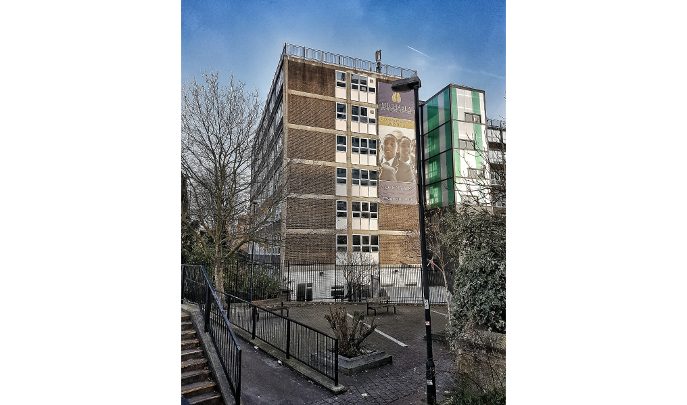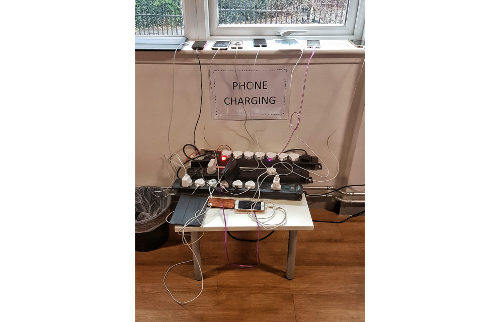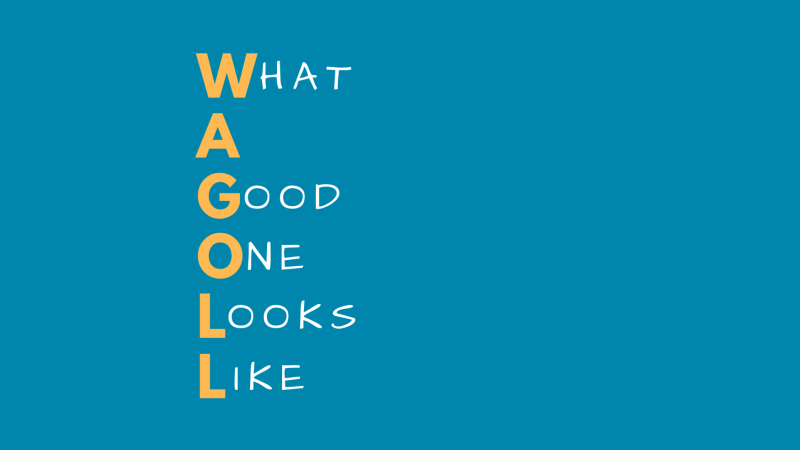‘Intimidating’, ‘Strict’ And ‘Authoritarian’ – The Notorious Michaela School Opens Its Doors

As the reportedly 'hard-line' West London secondary launches a new book on its practices and pedagogy, Mike Stuchbery is invited to look into the eye of the tiger teachers

Often, buildings take on a little of the feel of the institution they are housed within. Such is the case with the home of Michaela Community School – a tall, blocky, relatively modern building looming at you as you clear the barriers at Wembley Park tube station. An imperial purple banner, draped down one side, shows two students and the school’s motto, ‘Knowledge Is Power’.
It is, in a few words, quite intimidating.
The word ‘intimidating’ is often associated with the school, along with ones like ‘strict’ and ‘authoritarian’. In the space of two short years it has, like a comet, blazed across the skies of English schooling, unashamedly embracing a traditional, ‘back to basics’ approach to pedagogy, gaining equal numbers of fans and detractors amongst the education community.
After a summer that saw Michaela mired in controversy over their ‘lunchtime isolation’ policy, head Katharine Birbalsingh and her team took the opportunity to recapture the narrative with the release of their book Battle Hymn of the Tiger Teachers: The Michaela Way on Saturday 26 November.
A remarkably open and comprehensive examination of the school’s methods, Tiger Teachers seeks to be a manifesto for advocates of school reform along traditional lines. Grass-roots revolution and the dismantling of existing (progressive) systems are significant themes.
It was fitting therefore, that Saturday’s book launch was more party rally than polite chatter over canapés. The couple of hundred attendees, mostly teachers, some of whom came from a significant distance, were ushered into one of the school’s dining halls, the walls festooned with signs bearing the hashtag for the day, along with the school’s Wi-Fi details. A charging station for phones stood at the back and a camera was set up to live-stream the proceedings.

This was obviously an event meant to go far beyond the walls of the school. It was slick, professional and forthright.
The format of the day, stretching over seven hours, was simple – staff members took turns speaking on an area of the school life. These were punctuated with Q&A sessions, with Birbalsingh often interjecting to clarify a point.
After the aforementioned outspoken head opened with an outline of what we were to expect, she handed over to new history teacher Mike Taylor, who gave his impressions of joining the team in September. What ran throughout his talk was all the things that were possible at Michaela, in comparison to his previous school.
Trending
On then, to English HOD, Jo Facer, who spoke about the staff’s approach to CPD – put simply: Monday afternoon meetings, book club and informal observations. Science HOD Olivia Dyer then railed against progressive pedagogy that asks students to guess, more than know (“Just tell them!”) before handing over to Jessica Lund who calmly slaughtered many of the sacred cows of workload.
Perhaps one of the day’s highlights occurred just before lunch. Having responded to a number of questions, Birbalsingh entered into an impassioned defence of the school’s methods in attempting to improve the life chances of local young people. It was a polemic against the widening inequality gap, singling out nearby Harrow and former London Mayor Boris Johnson as avatars of entrenched privilege. It was met with wild applause and cheers – the room visibly energised. Watch it here:
The afternoon began with Jonathan Porter articulating the reasons behind the school’s ‘No Excuses’ behaviour systems, then Joe Kirby spoke about how the their ‘boot camp’ seeks to break bad habits.
Katie Ashford talked at length the school’s unique approach to reading – line by line, with rulers essential. Deputy head, Barry Smith, discussed the unique behavioural standards of students, and Ms Birbalsingh closed out the day with a defiant call to action to take these methods back to schools across the country.
It was an illuminating day. For a former critic of the Michaela, I was astonished at the obvious love and deep reasoning behind each of their ‘hard-line’ policies. All of the staff spoke with unaffected fervour, without an air of superiority or haughtiness, but rather a willingness to share ideas. These people fully believe in what they do.
I had the chance to have a drink in a local pub with several staff members after the book launch, and I was impressed at the depth of understanding each had in the school’s pedagogical approach. It wasn’t simply a case of ‘We do it because we’ve been told to’ – they all knew why they were ‘rowing together’.
Michaela Community School will, undoubtedly, continue to make headlines for a variety of reasons. The launch of their book and their willingness to open themselves to visitors, however, signifies a concerted effort to engage in and embrace feedback from the wider educational community. That, from any school, should be celebrated.











